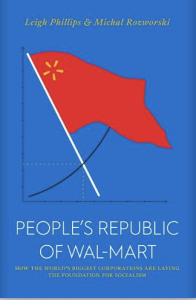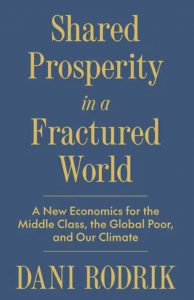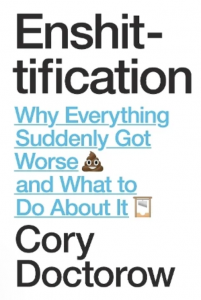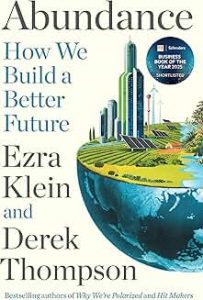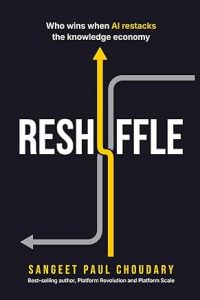The month has been a bit of a blur but on one trip I read People’s Republic of Walmart by Leigh Phillips and Michal Rozworski. It has one of those long, chatty subtitles that try to save you the trouble of reading the book: How the world’s biggest corporations are laying the foundation for socialism. They wish – the authors are out of the Jacobin stable, and so explicitly (sort of) Marxist.
The premise is revisiting the socialist calculation debate, mashed up with Coase and Simon, in the light of big data and AI. So it’s similar territory to Bastani’s (2020) Fully Automated Luxury Communism. People’s Republic begins with recent examples of large coprorations planning their internal economy using digital technologies, data, and investment in logistcs – Walmart and Amazon. It expands from there to index funds and common ownership, the NHS, the space race and the examples of the Soviet Union and Allende’s Chile. The point hammered home in each chapter is that there are so many examples of managed rather than non-market exchange that technological advances mean planning (or bureaucracy) can replace markets in many more areas of the economy.
There’s certainly an interesting debate to be had about the extent to which AI can potentially substitute for prior modes of organisation, whether market arrangements or bureaucracies, by the new affordances for summarising and organising a lot of information. Henry Farrell and co-authors propose AI is indeed a new social technology.
But People’s Republic fails to distinguish between planned economies – Walmart may be described in this way, in line with Herbert Simon’s well-known observation – and actual (as opposed to ‘free’) markets. The fully free market is as mythical as the unicorn. All actual markets are structured by regulation, other government intervention, standards, customs and other institutional arrangements; but this is not ‘planning’. The book underestimates the huge amount of physical and software investment needed to make Walmart’s logistics possible; organising information is neither entirely intangible nor easy even in the big data era.
It’s also slightly weird, to me at least, to position Walmart and Amazon (even with a benign approach to human labour assumed) as demonstrations of the possibility of socialist utopia in the 21st century. Even before its ‘enshittification’ Amazon couldn’t distinguish between me buying economics books for me and young reader books for my 7 yr old grand-daughter.
I think it likely that AI will reshape economic structures, just as earlier digital technologies did, making Walmart and Amazon possible, along with many other platforms – how dramatically depends on what you think the limits of computability are. It would be nice to think governments will respond strategically in their interventions in the economy and how they structure the operation of markets, though this isn’t something I’d confidently expect. I hope the conditions of labour improve through policy and organisation, doing away with terrible, precarious jobs. But the 1920s/30s lens of (idealised) planning versus (idealised) markets won’t be the best way to analyse what happens. Having said that, this was a very jolly read, and anything debunking the myth that markets are ‘free’ is welcome.

